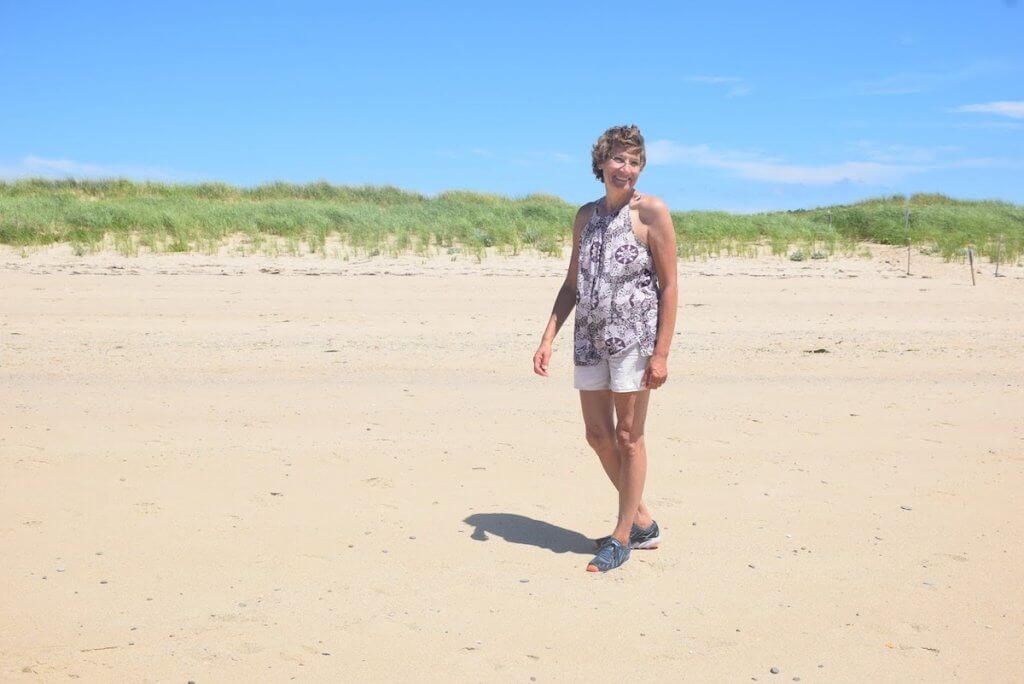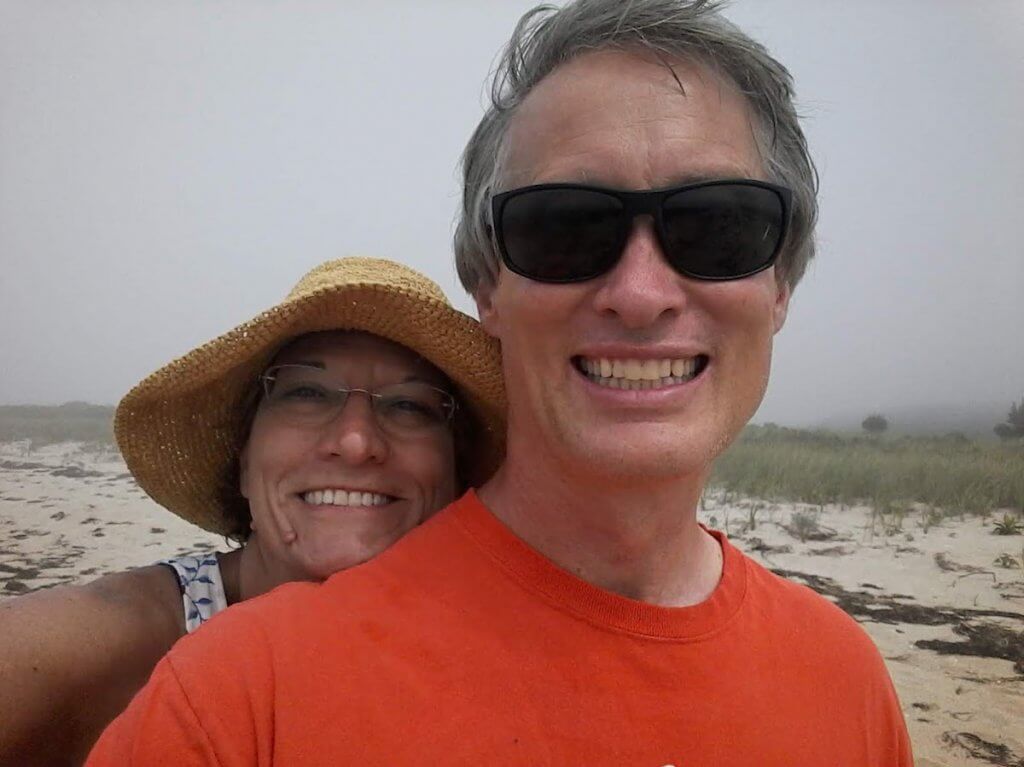Two things most surprised Jackie Page about her stage III ovarian cancer diagnosis in early 2019. She had no family history of the disease, and she had just turned 52 — a younger age than many women who learn they have it.
What most worried her was whether she would have good options for treatment: Ovarian cancer is often diagnosed at a later stage, when fewer treatment options are available. But just a two-hour drive from her Cape Cod home, at the Susan F. Smith Center for Women’s Cancers at Dana-Farber/Brigham and Women’s Cancer Center (DF/BWCC), the newest research was happening.
As a result, Page was able to join a clinical trial that has put her into remission and enabled her to continue an active lifestyle.
“I know you are never guaranteed a tomorrow, whether you have cancer or anything else,” says Page. “Having access to this trial, and this center, has given me the opportunity to enjoy each day on its own.”

Finding a team
An avid hiker and kayaker who runs a software business with her husband, Mike, Page had never spent a night in the hospital until went past her 50th birthday. Then, she “made up for it big-time,” as she says.
First, in mid-2018, she had her gallbladder removed. A few months later she developed a bad cold that she thought was bronchitis — but turned out to be much worse. She went to the emergency room, where doctors discovered a lot of fluid had formed around her lungs.
“The doctors told me they couldn’t believe I was still walking,” Page recalls.
Four days of follow-up tests later confirmed the fluid was caused by ovarian cancer that had spread from her abdomen to her lung cavity. Doctors at Cape Cod Hospital recommended she head to Boston and DF/BWCC, where there would be more treatment options — including clinical trials. She took the advice, and on her initial visit in March 2019 met her Susan F. Smith Center treatment team led by medical oncologist Carolyn Krasner, MD, surgical oncologist Michael Worley, Jr., MD, nurse practitioner Alison Hamel, CNP, and research nurse Sarah Hindenach, BSN, RN.
“I loved my team from the start,” says Page. “I had great confidence in all their abilities, and they did a wonderful job keeping me calm.”
Empowerment and environment
Page needed chemotherapy to shrink her tumor prior to surgery. She was given the option of standard chemotherapy or participation in a phase III clinical trial testing whether two new drugs — TSR-042 (an immunotherapy PD-1 inhibitor) and niraparib (a PARP inhibitor) — could slow or stop ovarian cancer recurrences when combined with standard treatment. Dana-Farber is a research leader in the use of both these drug classes; after much consultation with her care team, Page chose to join the trial.
Several cycles into the treatment, however, she had complications that precluded her planned surgery. Her age and overall good health still made her an excellent surgical candidate, so her doctors recommended that before having her ovaries removed, she first have a smaller exploratory procedure on her lungs at Cape Cod Hospital to determine the full extent of her cancer. Worley, Jr. then performed the second surgery at DF/BWCC.
Once recovered, Page resumed treatment on the clinical trial. She is now receiving the maintenance phase of treatment, and will continue doing so for up to three years.
“Standard treatment for ovarian cancer is effective, but not as good as we would hope,” says Krasner. “Some patients do not achieve initial remission, and the majority experience relapse after initial treatment. This trial is an attempt to improve on initial treatment and provides a maintenance therapy. The hope is to control disease, keep patients in remission longer, and perhaps yield more ovarian cancer cures.”

The trial, which Page joined in spring 2019, requires that she take daily oral medication and come to DF/BWCC for check-ups (each three weeks) and infusions (each six weeks). Initially her husband came to Boston with her, but she did so well on the treatment — and experienced so few side effects — that in early 2020, she felt she could start making the drives alone.
“That decision empowered me, knowing I could do it,” says Page.
What has helped, she says, is the level of comfort and safety she has felt at DF/BWCC, especially during COVID-19. Right now, the trial is working, and there is no sign of recurrent disease. Page knows that she needs to be ready for more challenges, but she’s grateful for the opportunity she’s been given to live life to the fullest.
“They tell me I’m a boring patient these days,” she says with a laugh. “That’s fine with me.”
